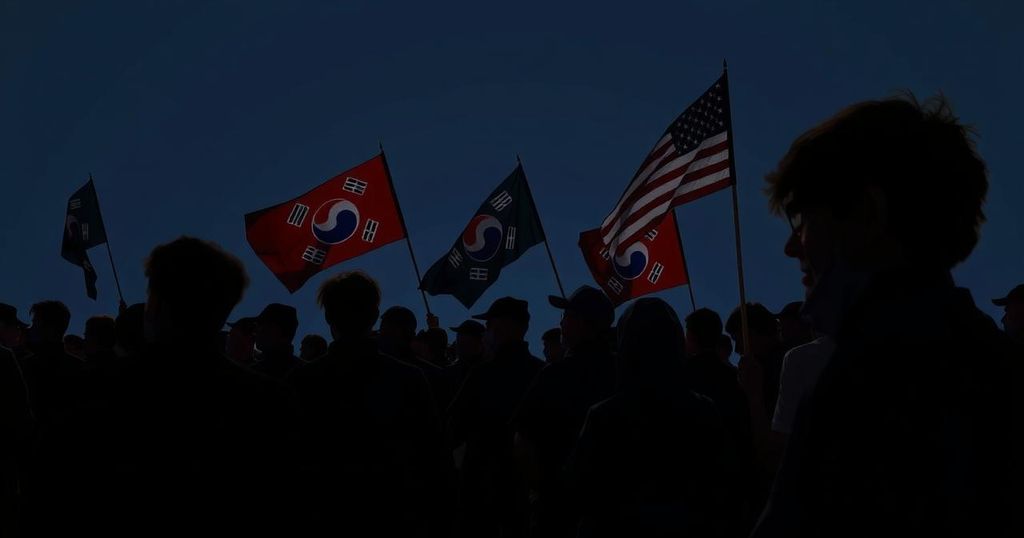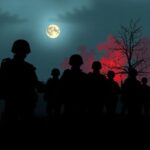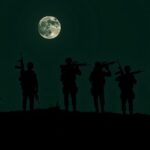South Korean Civil Groups Protest Against U.S. Military Exercises, Calling for Peace and Dialogue
Summary
On August 20, 2023, South Korean civil groups protested against joint military exercises with the U.S., arguing that these maneuvers heighten tensions and could lead to nuclear conflict. Demonstrators called for dialogue instead of military escalation, with the Ulchi Freedom Shield exercise at the center of their concerns.
On August 20, 2023, peace groups in South Korea organized a protest against the ongoing joint military exercises conducted alongside the United States, expressing concerns that such activities exacerbate tensions and crises on the Korean Peninsula. Demonstrators from the Solidarity for Peace and Reunification of Korea (SPARK) gathered in front of the presidential office in Seoul, brandishing placards with messages such as “Stop the exercise that intensifies nuclear confrontation and encourages war crisis” and chanting against participation in the military maneuvers. They articulated fears regarding the potential escalation to nuclear conflict, stating that nuclear confrontation could lead to devastating consequences for the region and the extinction of their people. Protesters called for an immediate cessation of what they termed “illegal” exercises that provoke confrontation. The Ulchi Freedom Shield (UFS) exercise, which commences annually in the summer, features field maneuvers, computer-simulated command exercises, and civil defense drills. South Korea defends the exercise as defensive; however, the Democratic People’s Republic of Korea (DPRK) views it as provocative and a preparation for invasion. The exercises are set to enhance the interoperability and preparedness of combined forces in response to potential threats, including weapons of mass destruction. Additionally, another group of activists held a rally near the presidential office, advocating for dialogue between the Koreas instead of escalating military activity. They argued that the enhanced cooperation between South Korean and U.S. forces represents an increasing subservience to U.S. military strategy, further intensifying regional conflicts. The Korea Peace Appeal campaign aims to gather support to officially conclude the Korean War, which technically remains unresolved since it ended in an armistice rather than a peace treaty, and has garnered participation from over 370 South Korean civic and religious organizations.
The ongoing tensions on the Korean Peninsula stem from a complex history involving the division of Korea after World War II and subsequent conflict during the Korean War (1950-1953). Despite the armistice that ended the hostilities, no formal peace treaty has been established, leaving the region in a state of military and political tension. The joint U.S.-South Korean military exercises, such as the Ulchi Freedom Shield, are framed as defensive strategies by South Korea, intended to enhance preparedness against potential threats. However, these exercises are perceived by the North as acts of aggression, contributing to the cycle of hostility. This context has led to the emergence of civil movements advocating for peace and the establishment of communication between the two Koreas.
In conclusion, the protests led by South Korean civil groups reflect a significant opposition to the joint military exercises with the United States, which are viewed as aggravating tensions and contributing to the risks of nuclear confrontation. The calls for peace and dialogue underline the desire for resolution to the longstanding conflict on the Korean Peninsula, emphasizing the need for reassessment of military strategies that could bring about further crisis.
Original Source: english.news.cn








Post Comment